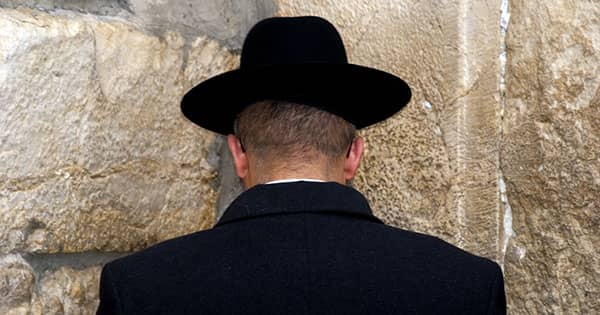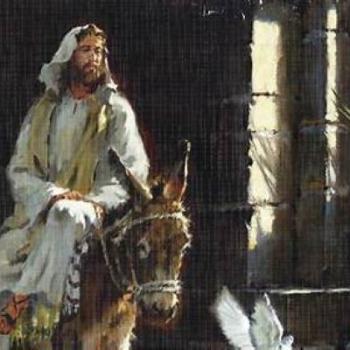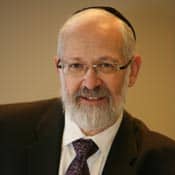 |
| Attila JANDI / Shutterstock.com
|
You would think that it is easy for traditional Jews to take Rosh Hashanah and Yom Kippur seriously. Everyone around you fully believes that their lives hang in the balance as G-d sits in judgment of everything in Creation. Think again. Working insidiously against this sobering thought is our very survival for another year. When we perform our inner housekeeping in the month before the Jewish New Year, we find lots to be unhappy about —and therefore uneasy, to put it mildly — about facing G-d's judgment. But we know that his mercy overrode his judgment in the past, so perhaps we'll be just as lucky this time around?
This produces a toxic lethargy. It makes no more sense than someone who, when summoned to the boss' office for possible termination, laughs it off because the boss has threatened to fire him in the past and he managed to avert the worst. One day, he won't be so lucky.
Many of us search for an image of something memorable in the year that went by to take some inspiration, and renew the sense of urgency. The Jewish year 5775 provided some strong visuals: the blood-soaked pages of prayer books from the Har Nof massacre; the crowds running through the streets of several European capitals, shouting "Death to the Jews." Those, however, are not going to do it. We've been there before as well — for over two thousand years. We've lived with the rabid hatred, and, with G-d's help we've outlasted all our oppressors.
Helping me focus are the images of the hundreds of thousands intent on fleeing the chaos of the Middle East — on foot, if necessary — to begin a new life in Europe.
These images place in sharp focus the lengths that people will go to improve their lot, especially when they find the status quo untenable. In these pictures we realize that when people have an opportunity to escape a life that is no life, they will cross seas and walk across continents for even a remote chance of improving their conditions.
Each year, G-d gives us the opportunity to vastly improve our connection with him through repentance during this season whose whole purpose is to inspire our return to him. It is within our power to close the distance that our transgressions opened up between our Creator and ourselves. We can change the spiritual parameters of our existence for the better, and do so from the comfort of our homes. We don't have to subject ourselves to human traffickers or the elements or an uncertain future. All we need to do is recognize the folly of our ways, feel remorse, and meaningfully resolve not to repeat our mistakes. If the Middle Eastern migrants go to such great lengths to better themselves, why can't we?
Perhaps because we run from obligations we cannot adequately discharge. We feel so much shame for repeated offenses, and so much obligation for his patience with us despite those trespasses, that we are overwhelmed. Easier, like Jonah, to flee from his presence.
Yet where should we go? Here again, the images of the Syrians and Iraqis are instructive. Unlike some of our parents and grandparents who tried to flee Hitler's Germany and had no idea of where to go, many of these refugees are seen pushing their way past borders and obstacles, shouting "Merkel, Merkel!" They do not know exactly how they will get there, but they know that they want to get to Germany!
Why do we not find our destination with the same focus and resolve? Here is a paraphrase from Nesivos Shalom, a contemporary Hasidic work:
We might think of shrinking away, of drawing back from the Power of His Presence. A better strategy would be to seek refuge, to find a place of safety. For believers, not only is there such a place, but we are all familiar with its address. We escape not by running away, but by rushing headlong directly into Him. We submerge our smallness into His greatness. We negate our own importance, and reach out to cling to Him. By negating ourselves, He moves within range. Self-negation is the key to achieving deveikus — firmly attaching ourselves and clinging to Him . (The Torah alludes to this in its description of the Yom Kippur service in the Holy of Holies. "No person shall be in the Tent of Meeting when he comes to provide atonement in the Sanctuary." At this moment of encounter with the Divine, one ceases to be a person.)





